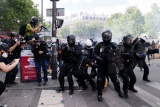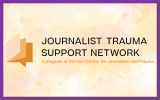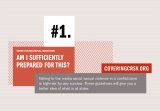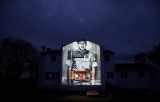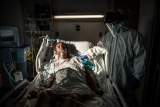
Dart Center Style Guide for Trauma-Informed Journalism
This Dart Center style guide is designed as a quick, authoritative reference for reporters, editors and producers working on tight deadlines. It includes brief evidence-informed guidance on news choices, language usage and ethics in reporting on the impact of trauma on individuals, families and communities; recommendations for appropriate use of relevant psychological and scientific terminology; and special considerations when reporting on consequential trauma-laden issues such as racism and sexual violence.
